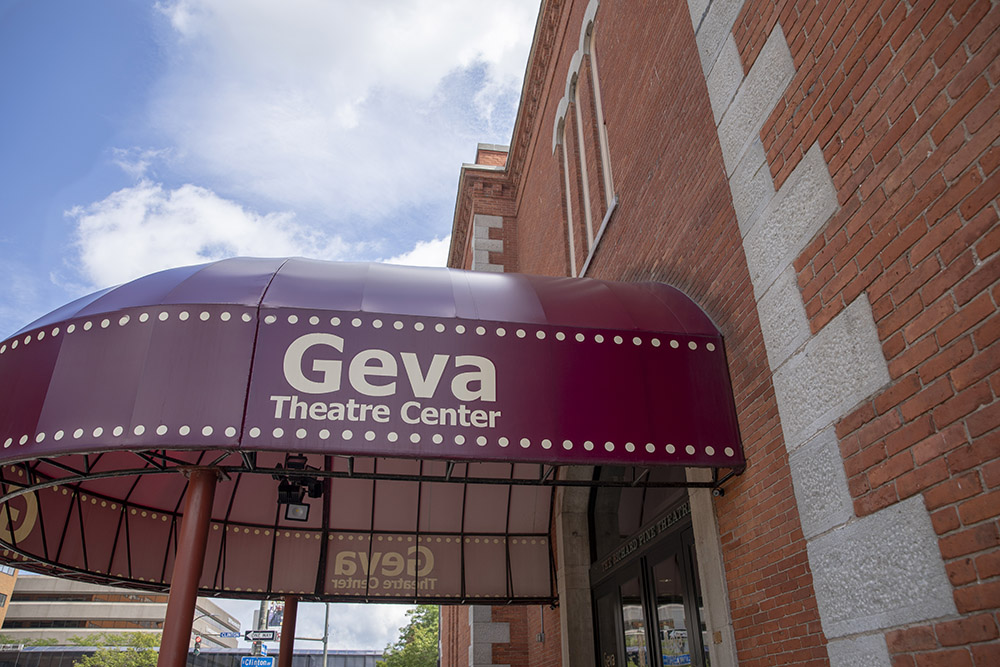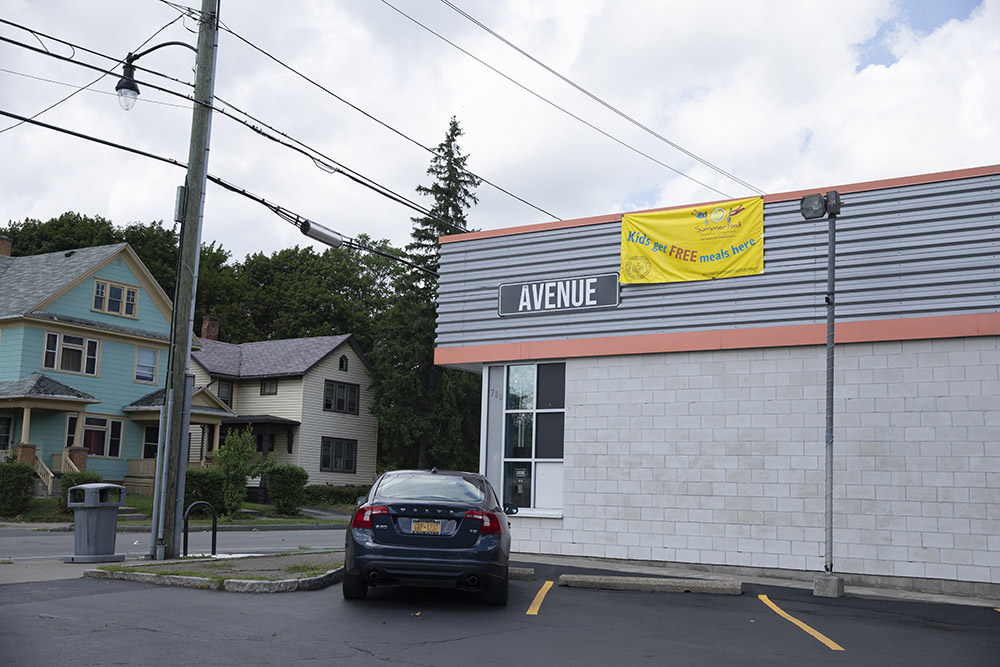Imagine sitting in a room, sharing a unique experience with hundreds of people from your community — there is nothing quite like it.
Theater is an exchange between actors and their live audience wherein, over the course of hours, a bond forms between the two groups. The shared excitement builds up until your heartbeat syncs with the crowd's. Christopher Mannelli, the executive director for the Geva Theater, described this connection.
“[There’s nothing like it] where you sit in a room with 500 people you don’t know, and you do a thing together, and you share that experience,” Mannelli said. “Having that shared experience is a really powerful way to connect to where you are, especially if you come from someplace else, to have your college experience.”
Geva Theater Center
The Geva Theater is going on their 47th year of showings, led by Mannelli and Communications Manager Dawn Kellogg.
Founded as a lunchtime theater and international company with actors from the UK, Geva evolved into more classic theater fare.
“In the last ten years, we’ve shifted toward new works creating and commissioning for American theater in Rochester,“ Mannelli explained.
The Geva Theater hosts 11 major productions beginning in September and running until June, such as the popular Christmas show — a Rochester holiday tradition, according to Mannelli. Geva is the most attended theater in Rochester and the largest not-for-profit theater in western New York, along with being one of the top 15 theaters in the country for attendance, Mannelli mentioned.
"Agitators," a show produced two years ago, is about Fredrick Douglass and Susan B. Anthony, made specifically for the Rochester community by Geva.
“As a regional theater, we create all of our own shows,” Mannelli said. “We choose from a wider palette of smaller shows, more local to Rochester.”
Geva brings in directors from all over, along with those they have on staff, producing originally created shows and modifying purchased show rights. Frequently, shows made in house tour around the country.
“[We have a] costume shop on site and build every part of the production,” Kellogg said.
"Students are really welcome, it’s not just a place for parents and grandparents."
With stages that sit between 180–500 patrons as well as 52 full-time staff, support staff and artisans, Geva is always busy. So, the quality of the shows is an important factor.
“One of our guiding factors is we create shows of the highest quality, baked into our mission,” Mannelli said about their mission statement. “You can’t go anywhere in the nation better than Geva.”
The theater prides itself on its hosting of Oscar and Tony nominees and suggests that students don’t have to go to New York City to see a great show.
“Students are really welcome, it’s not just a place for parents and grandparents,” Mannelli said. “The work that we’re doing on our stage speaks to young people even more strongly than it does to our older audience.”
According to Mannelli, the topic, messages and themes are very current and connect in a powerful way. To Kellogg, nothing provides a community connection like a live theater.
“We do have sign-interpreted performances, open-captioned performances,” Kellogg said. "[We are] wheelchair accessible [and provide] hearing loops.”
Rochester offers many other theaters, each with a unique history and contribution to the community.
The Avenue Blackbox
Reenah Golden, artistic director and founder of the Avenue Blackbox, began serving the community when she founded the No Drama Club.
“This is the second theater I’ve built. The first was in a church school ... so that we could have it be a part of the education and curriculum, but also so it could be a part of the community,” Golden said.
The majority of the performers at the Avenue are youth, many of whom have been with Golden since her first theater’s construction. Her original and continued goal is to be a space for young people to immediately engage and become a part of the theater.
To Bishop Kaerney, a 13-year-old who has worked with Golden for four years, the Avenue more than fulfilled its goal. According to her, the theater made her who she is today.
“Over the years of working with Golden, being in this space is enough to brighten someone’s day,” Kaerney said. “You can connect with people here; you can have that good communication.”
While engaging the youth and providing education is one goal, serving communities of color is another. The Avenue regularly works with various community partners, such as the Multi-use Community Cultural Center, the San Kofa festival and the Bronze Collective.
“These are all theater companies of color, and that’s our focus here, is artists of color and communities of color,” Golden explained. “If I like a show ... and it makes sense for this community, has really strong content, I like to pull shows that are for social justice.”
Golden picks shows that speak on issues pertinent to the community she is serving. In total, the Avenue hosts five to six productions, encores and youth showings made up of a mix of musicals and plays.
“[Our] show's focus is on curating an audience that can have the experience, not a large audience,” Golden said. “Some shows have a lot of people, 50 to 60 depending on the show.”
Golden tries to create a flexible space for outside artists, professors and teachers to collaborate and for students to perform. On Fridays, the Avenue hosts "Black AF," where artists can showcase their talent. They also host “Let’s Create,” a one-day event free for the community where RIT Master of Fine Arts students run stations teaching their specialties.
To Golden, this was a place for students who want to get off campus and impact the world. She offers a safe and bold space for the LGBTQ+ and ALANA communities that is always welcoming volunteers and viewers.
"Being in this space is enough to brighten someone’s day."
As an RIT student, it can be easy to confine yourself to campus due to work, stress or sheer distance from Rochester. Should you make the time, however, there are many reasons to go out and enjoy the city. While your first tendency might be to attend the movies, bars or shopping centers, many local theaters offer fresh, lively shows constantly adapting to fit the community they serve.









